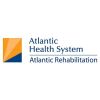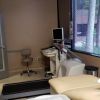1. Why Heart Health Screenings Are Important
Heart disease is one of the leading causes of death in the United States and worldwide, making regular heart health screenings absolutely vital. By checking your heart health regularly, you gain valuable insights into your cardiovascular system's well-being, allowing you to take preventive measures against potential problems before they become life-threatening. Many heart diseases develop silently, without noticeable symptoms, which is why it’s crucial to stay ahead by scheduling heart screenings regularly. Early detection can save lives, and in many cases, it can significantly reduce treatment costs and risks associated with advanced heart conditions.
2. Understanding Heart Health and Its Impact
Heart health refers to the overall condition of your heart and blood vessels, including factors such as blood pressure, cholesterol levels, and the efficiency of the heart’s pumping action. If your heart is healthy, blood flows smoothly throughout your body, providing oxygen and nutrients to vital organs. However, when heart health is compromised, various problems can arise, including high blood pressure, clogged arteries, and even heart attacks. The heart is one of the most vital organs in your body, and maintaining its health is crucial to living a long, fulfilling life. Understanding the importance of heart health screenings allows you to make informed decisions about lifestyle changes, medications, and other preventive measures.
3. What to Expect from Heart Health Screenings
Heart health screenings typically involve a variety of tests that help assess the overall health of your cardiovascular system. These tests may include blood pressure checks, cholesterol screenings, blood tests to check for markers of heart disease, and possibly even imaging tests such as an EKG or echocardiogram to measure heart function. The goal of these screenings is to detect potential issues early, allowing your doctor to make recommendations for treatment or lifestyle changes that could improve your heart health.
Screenings are often simple and non-invasive, but the information they provide can be crucial for preventing heart disease. It’s a good idea to begin heart health screenings as early as your mid-20s or 30s, especially if you have a family history of heart disease or other risk factors. Regular screenings can provide peace of mind and keep you proactive about your health.
4. Common Heart Diseases Prevented by Regular Screenings
Several common heart diseases can be prevented with regular screenings. These include hypertension (high blood pressure), coronary artery disease, arrhythmias (irregular heart rhythms), and high cholesterol. All of these conditions can significantly increase your risk of a heart attack or stroke, but they often develop without warning signs. Regular heart screenings allow you to identify these conditions early, often before you experience any symptoms, which can make all the difference in preventing serious complications.
For example, high blood pressure is known as the “silent killer” because it typically doesn’t present obvious symptoms but can lead to severe conditions like heart failure or kidney disease. By monitoring your blood pressure regularly, you can catch any unusual readings and take steps to control it before it becomes problematic.
5. How Early Screenings Save Lives and Prevent Complications
Many people who experience heart-related issues such as heart attacks or strokes have been living with underlying conditions for years without knowing it. That’s why early heart health screenings can be a lifesaver. By identifying issues such as high cholesterol, clogged arteries, or irregular heart rhythms early on, doctors can prescribe medications, recommend lifestyle changes, or schedule follow-up visits to manage the condition and prevent more serious health concerns.
For instance, a routine cholesterol check can help you understand your risk of developing plaque buildup in your arteries. Early treatment, such as dietary changes or cholesterol-lowering medications, can prevent this plaque buildup from leading to a dangerous heart attack or stroke. Preventing these conditions early through regular screenings ensures a longer, healthier life.
6. The Importance of Consistent Health Monitoring for Heart Disease
Consistent health monitoring is key to managing heart disease risks. Even if you don't have any symptoms, regular screenings allow you to stay on top of changes in your heart health. Over time, your heart health can change due to various factors such as aging, diet, stress, or other underlying health issues. By making heart health screenings a regular part of your routine, you can catch problems early and adjust your lifestyle or treatment plan accordingly.
For example, if you have a family history of heart disease, it's essential to monitor your health more closely to detect any early signs of potential problems. Similarly, if you are overweight or have diabetes, regular screenings help you manage the risks associated with these conditions and ensure your heart remains healthy.
7. How to Schedule Your Next Heart Health Screening
Scheduling a heart health screening is simple. Many healthcare providers offer routine screenings as part of your annual physical exam, or you can schedule a dedicated heart screening appointment with your doctor. If you're unsure when to schedule your next screening, talk to your healthcare provider about your individual risk factors and family history of heart disease. They can help determine the appropriate timeline for your screenings based on your specific needs.
It’s important to stay proactive and schedule your screenings regularly, even if you feel healthy. Early detection is the key to preventing long-term damage, and it can make all the difference in your overall well-being.
8. Why Choose Our Heart Health Services for Screenings
At [Your Clinic Name], we prioritize your heart health and offer comprehensive heart screenings to detect early signs of potential issues. Our expert medical team is dedicated to providing you with the highest level of care, ensuring that your heart health is monitored regularly and effectively. Whether you're concerned about your heart health or simply want to stay on top of your cardiovascular well-being, our heart health services provide the support and guidance you need.
Don’t wait until a problem arises—schedule your heart health screening with [Your Clinic Name] today and take control of your health for a better, longer life.




















